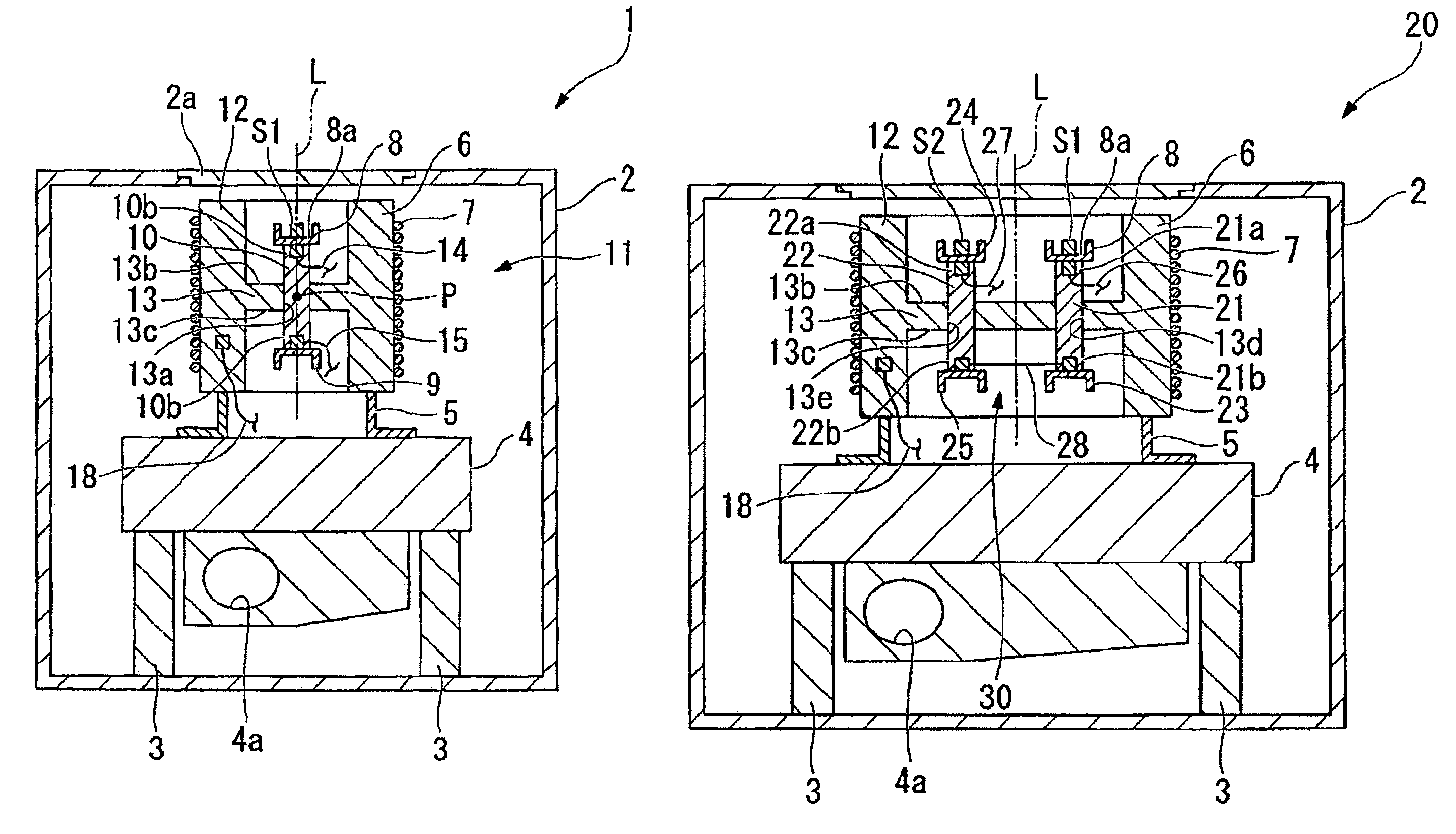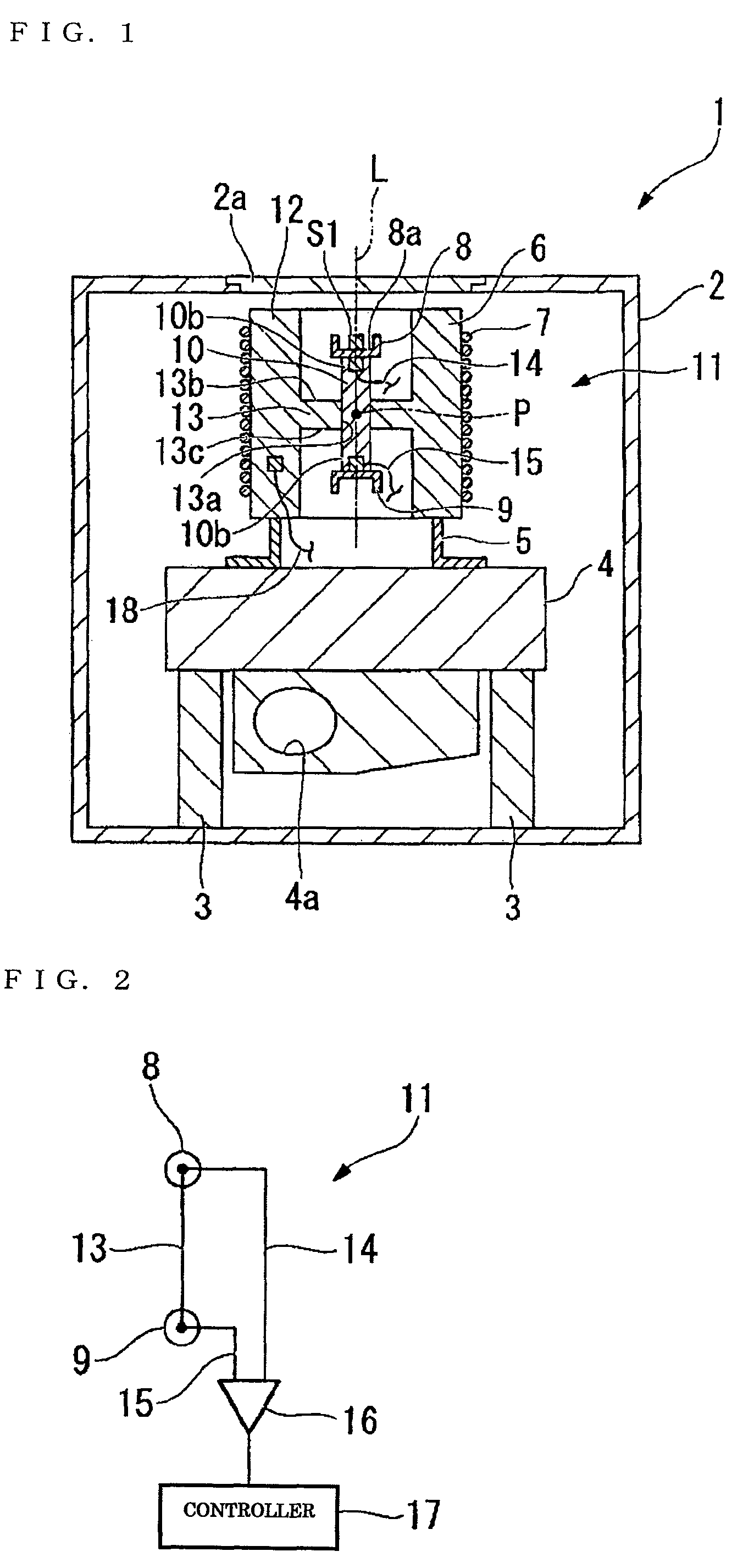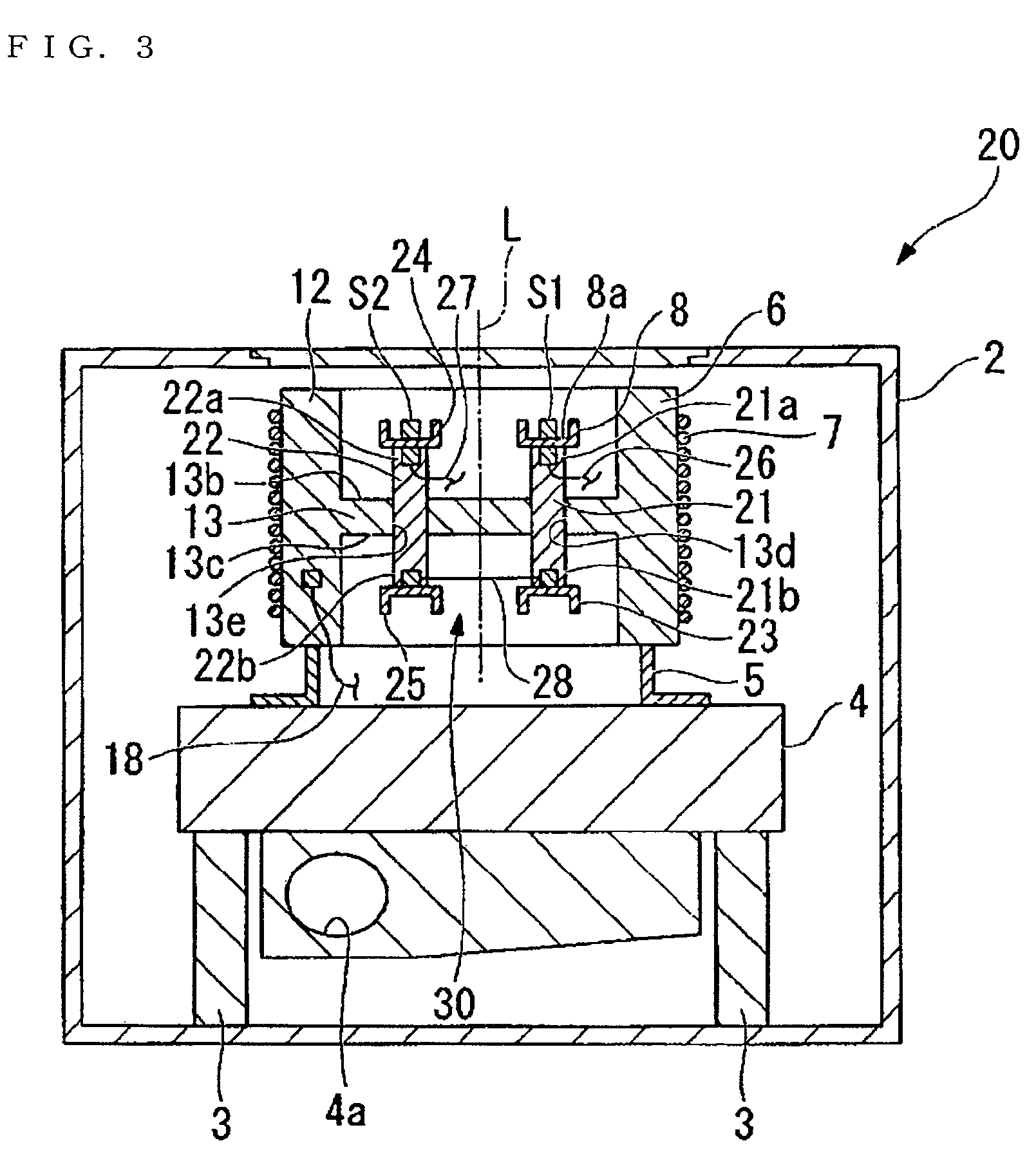Differential scanning calorimeter
a scanning calorimeter and scanning calorimeter technology, applied in the field of differential scanning calorimeters, can solve the problems of inability to precisely detect the amount of heat that the sample emits or absorbs in spare compared with that of the reference sample on the basis of the difference between both temperatures, and the inability to precisely detect the amount of heat that the sample emits or absorbs in spare compared with that of the reference sample, so as to improve the heat conductivity of the heat resistan
- Summary
- Abstract
- Description
- Claims
- Application Information
AI Technical Summary
Benefits of technology
Problems solved by technology
Method used
Image
Examples
second embodiment
[0036]FIGS. 3 and 4 show a second embodiment of the invention. In the second embodiment of the invention, the same elements as those of the first embodiment are denoted by the same numerals and explanation thereof will be omitted.
[0037]In a differential scanning calorimeter 20 according to the second embodiment of the invention, a pair of through-holes 13d and 13e are formed at the heat inflow part 13 of the heat sink 6, and the first heat-resistance member 21 and the second heat-resistance member 22 are secured at the heat inflow part 13 penetrating the corresponding through-holes 13d and 13e, respectively. The first heat-resistance member 21 and the second heat-resistance member 22 have an approximately bar shape with a uniform section, and may be made of a material which has heat conductivity lower than that of the material of the heat sink 6. For example, the heat-resistance members 21 and 22 may be made of constantan. The first heat-resistance member 21 and the second heat-resi...
PUM
| Property | Measurement | Unit |
|---|---|---|
| differential scanning calorimeter | aaaaa | aaaaa |
| outer circumference | aaaaa | aaaaa |
| heat-resistance | aaaaa | aaaaa |
Abstract
Description
Claims
Application Information
 Login to View More
Login to View More - R&D
- Intellectual Property
- Life Sciences
- Materials
- Tech Scout
- Unparalleled Data Quality
- Higher Quality Content
- 60% Fewer Hallucinations
Browse by: Latest US Patents, China's latest patents, Technical Efficacy Thesaurus, Application Domain, Technology Topic, Popular Technical Reports.
© 2025 PatSnap. All rights reserved.Legal|Privacy policy|Modern Slavery Act Transparency Statement|Sitemap|About US| Contact US: help@patsnap.com



